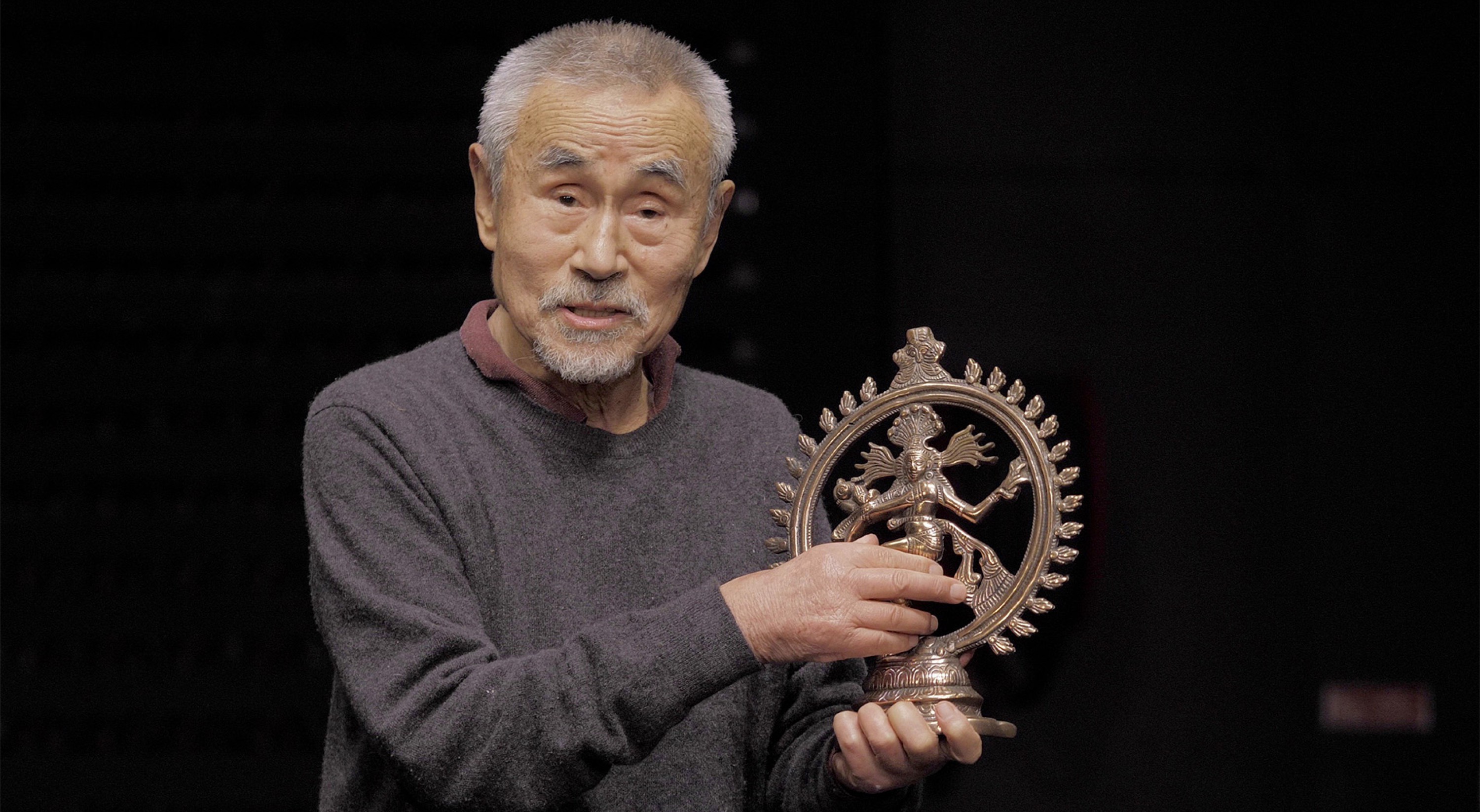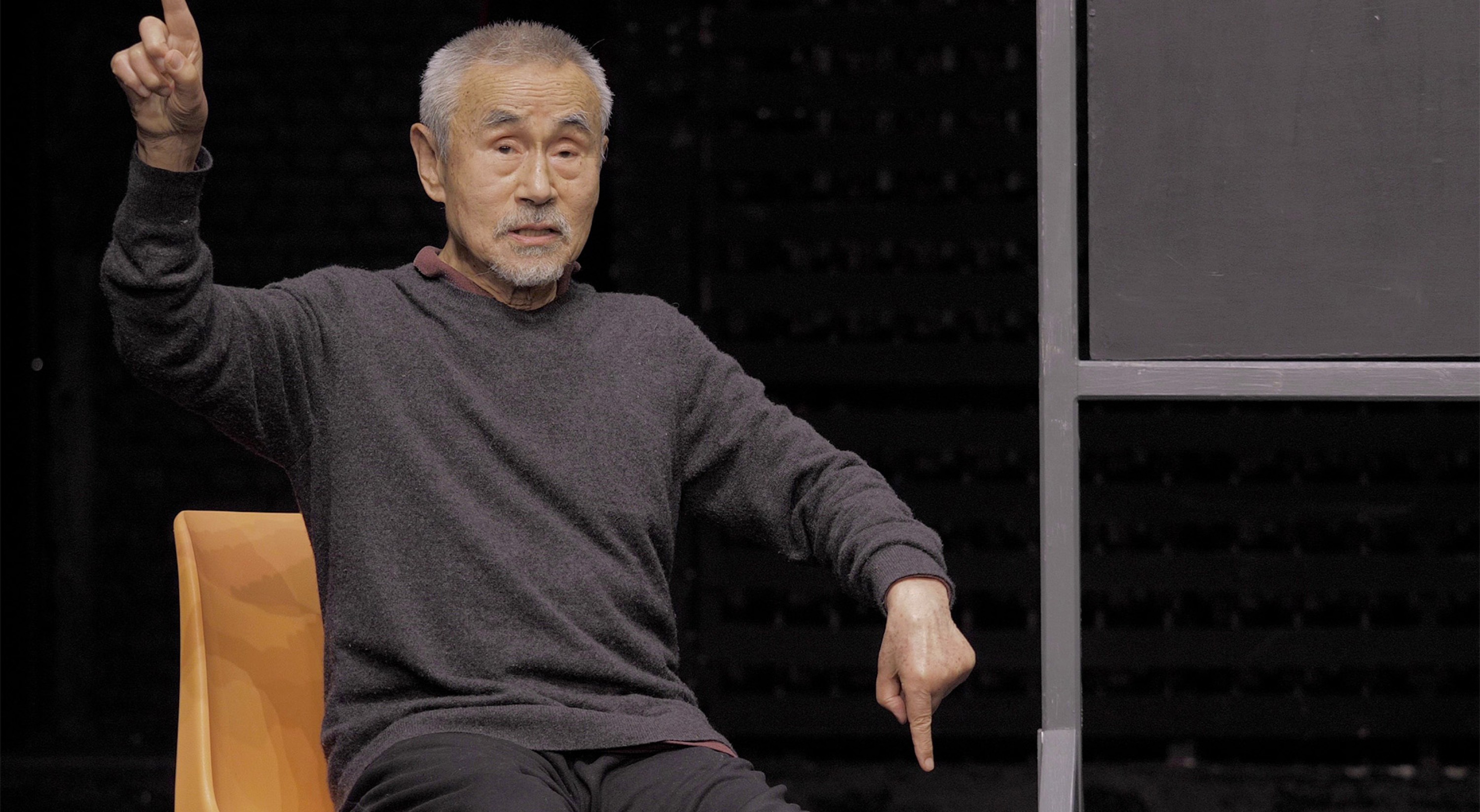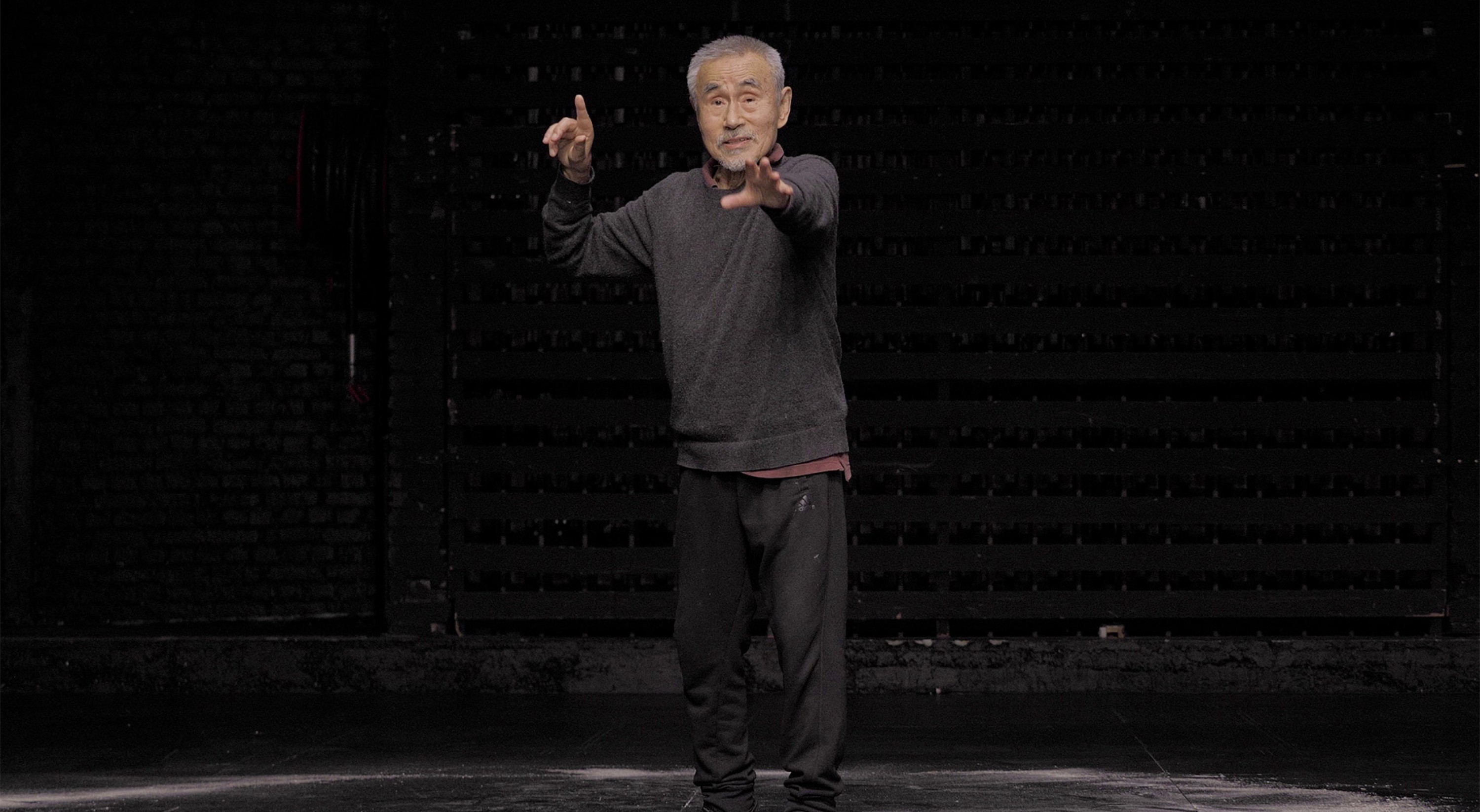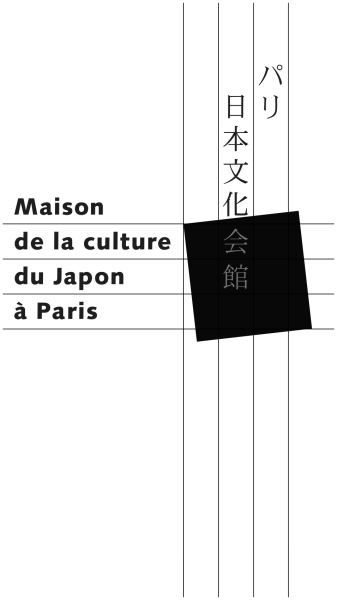Maxime Kurvers
4 questions à Yoshi Oida
octoberoct 11 – 15
Text and stage work, Maxime Kurvers and Yoshi Oida
Conception, staging, Maxime Kurvers
Featuring Maxime Kurvers and Yoshi Oida
Lights, Manon Lauriol
Kagura mask, workshop of Kakita Katsuro (Hamada)
Traditional Noh Ko-omote mask from the Shōwa era (1926-1989)
Hagoromo
Shite (Tennin) : Keigo Suzuki
© Kanzekyuukoukai / Yarai-Noh Theater
Produced by La Commune CDN d’Aubervilliers, MDCCCLXXI (Paris)
With support from the House of Japanese Culture in Paris – Japan Foundation; The Saison Foundation (Tokyo)
Maxime Kurvers is an associate artist at La Commune CDN d’Aubervilliers
Co-directed by the House of Japanese Culture in Paris; Festival d’Automne à Paris
With support from the Foundation for the Study of Japanese Language and Civilization, housed by Fondation de France and Fondation franco-japonaise Sasakawa
Play created on febrary the 1rst 2021 at théâtre Antoine Vitez, Aix-en-Provence, as part of the festival Parallèle
Maxime Kurvers brings to the stage a performed dialogue with the Japanese actor and theorist Yoshi Oida. It investigates, over the course of incursions into his memories, the role and social function of performers. In doing so, it also brings up the much wider question of the theatre’s ethical and metaphysical scope.
Following on from Théories et pratiques du jeu d’acteur·rice (1428-2022), 4 questions à Yoshi Oida is part of an anthropological theatre project in which Maxime Kurvers maps out the practices and theories of his discipline. Reduced to its dramaturgical core and a handful of accessories, the staging concentrates our attention on the dialogue with the Japanese actor and theorist. It picks up on the codes of the “encounter with an artist” format, and uses them as the basis for performance. Onstage, Yoshi Oida shares his reflections on an art which he has been practicing for over half a century. The piece then enables these memories to find their expression on the stage. The interview, conducted in as spontaneous a manner as possible, is structured around four central questions. Its aim is to pay homage to Yoshi Oida’s unique approach to theatre, beyond its sense-led dimension. In discovering Yoshi Oida’s practice, theatre becomes a way of situating ourselves and making our way forward in the world… as well learning to live and, of course, to die in it.
In the same place



